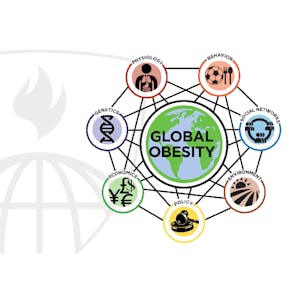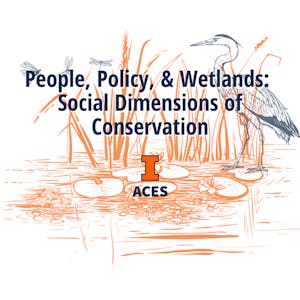Systems Science and Obesity
About this Course
Systems science has been instrumental in breaking new scientific ground in diverse fields such as meteorology, engineering and decision analysis. However, it is just beginning to impact public health. This seminar is designed to introduce students to basic tools of theory building and data analysis in systems science and to apply those tools to better understand the obesity epidemic in human populations. There will also be a lab in which students will use a simple demonstration model of food acquisition behavior using agent-based modeling on standard (free) software (netlogo). The central organizing idea of the course is to examine the obesity epidemic at a population level as an emergent properties of complex, nested systems, with attention to feedback processes, multilevel interactions, and the phenomenon of emergence. While the emphasis will be on obesity, the goal will be to explore ways in which the systems approach can be applied to other non-communicable diseases both nationally and internationally. Topics will include: a) the epidemiology of obesity across time and place, b) theories to explain population obesity, c) the role of environments and economic resources in obesity c) basic concepts and tools of systems science, d) modeling energy-balance related behaviors in context, e) agent-based models, systems dynamic models, and social network modelsCreated by: Johns Hopkins University

Related Online Courses
There are many uses for Microsoft online. In this project you will explore Microsoft Forms. You will be able to create surveys, polls, quizzes and invitations for free using the web based Microsoft... more
Cybersecurity is essential for everyone who uses information or communications technologies. Whether it is your computer, tablet, or smartphone, if it is connected to a network, learn about the... more
This is a self-paced lab that takes place in the Google Cloud console. In this lab, you perform administrative tasks that are essential to the optimal use of an AlloyDB for PostgreSQL... more
This Specialization examines the complex relationship between wetlands, human activity, and conservation policy. Learners will explore strategies to mitigate human impact, analyze wetland... more
This course helps to build the foundational material to use mathematics as a tool to model, understand, and interpret the world around us. This is done through studying functions, their properties,... more








